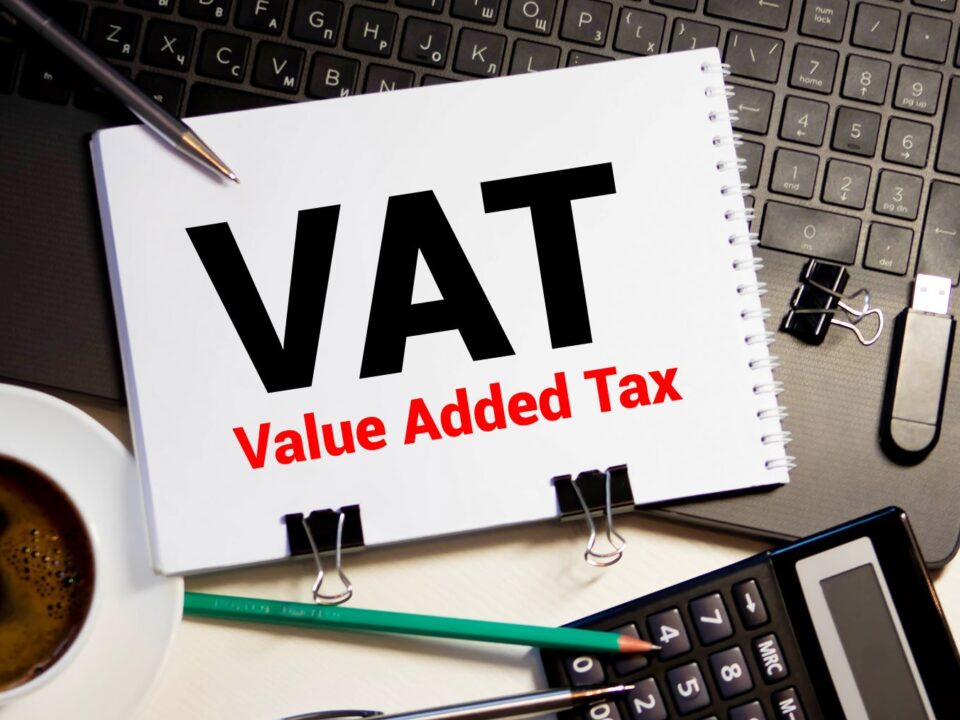
Penalties for Late Filing of Tax Returns
January 21, 2025
Inheritance Tax Planning in Herne Bay – Secure Your Legacy with Smart Tax Strategies
February 11, 2025How to Reduce Corporate Tax Liability in the UK

Every business in the UK, from small startups to large corporations, is looking for ways to improve its financial efficiency. Understanding how to effectively reduce corporate tax liability is crucial for businesses aiming to enhance their profitability and ensure sustainable growth. One of the most effective strategies to achieve this is by legally and ethically reducing corporate tax liability. By taking advantage of available tax reliefs, deductions, and strategic financial planning, businesses can minimize their tax burdens while staying fully compliant with HMRC regulations. In this guide, we’ll explore key strategies that UK businesses can use to reduce their corporate tax liability, including maximizing allowable expenses, utilizing R&D tax credits, and effective VAT schemes. Moreover, we will delve deeper into how to reduce corporate tax liability through innovative financial practices that yield long-term benefits.
Understanding Corporate Tax in the UK
Corporate tax is a levy imposed on the profits of limited companies operating in the UK. It is administered by HMRC (Her Majesty’s Revenue and Customs) and is applied to both UK-based companies and foreign companies with UK branches.
Current Corporate Tax Rates
As of 2024, the corporate tax rate in the UK varies based on a company’s profits:
- Small Profit Rate (19%) – For companies with profits below £50,000.
- Main Rate (25%) – For companies with profits exceeding £250,000.
- Marginal Relief – Applies to profits between £50,000 and £250,000, reducing the effective tax rate on a sliding scale.
Key Regulatory Bodies and Tax Laws
- HMRC – Oversees corporate tax compliance and enforcement.
- Corporation Tax Act 2010 – Governs corporate tax rules.
- Finance Acts (Annual Updates) – Introduce changes to tax rates, reliefs, and regulations.
Top Strategies to Reduce Corporate Tax Liability
1. Maximizing Allowable Business Expenses
One of the simplest ways to reduce corporate tax is by deducting all legitimate business expenses from taxable profits.
Qualifying Business Expenses:
- Office rent and utility bills
- Employee salaries and National Insurance Contributions (NICs)
- Marketing and advertising costs
- Business travel and accommodation
- IT and software expenses
Best Practice: Maintain clear documentation of all expenses with invoices and receipts to avoid HMRC scrutiny.
2. Capital Allowances and Tax Reliefs
Capital allowances provide tax relief on investments in business assets.
- Annual Investment Allowance (AIA) – Allows businesses to claim 100% tax relief on qualifying equipment purchases (up to £1 million per year).
- First-Year Allowance (FYA) – Offers 100% deduction for energy-efficient or environmentally beneficial equipment.
- Writing Down Allowance (WDA) – Allows gradual tax relief for asset depreciation over time.
3. R&D Tax Credits
The UK government encourages innovation through R&D tax relief, available to companies investing in research and development.
Eligibility:
- Projects that seek technological or scientific advancements.
- Innovation in software, manufacturing, or engineering sectors.
- Companies must be a UK-registered business paying corporate tax.
Claiming R&D Tax Credits:
- SMEs can receive up to 86% of qualifying R&D costs as relief.
- Large companies can claim via the RDEC scheme at 20% of eligible R&D expenditure.
4. Utilising Loss Relief
Businesses experiencing financial losses can reduce tax liability by offsetting losses against profits from other years.
Types of Loss Relief:
- Carry Back Losses – Offset losses against profits from the previous year, generating a tax refund.
- Carry Forward Losses – Offset losses against future profits to reduce taxable income.
Example: If a company incurs a £100,000 loss in Year 1 and makes £200,000 in Year 2, they can carry forward the loss to reduce taxable profits to £100,000, lowering their corporate tax bill.
5. Employment-Related Tax Incentives
Businesses can reduce their tax burden by utilizing tax-efficient employment schemes.
- Apprenticeship Levy – Offers financial support to companies hiring apprentices.
- Employee Share Schemes – Encourages employee retention with tax-efficient share options such as EMI (Enterprise Management Incentives).
6. Efficient Business Structure and Tax Planning
The way a company is structured can significantly impact its tax liability.
- Holding Companies – Can shield profits from higher taxation.
- Dividends vs. Salary – Paying dividends instead of salary can reduce National Insurance Contributions (NICs) and overall tax exposure.
7. Making Use of VAT Schemes
For VAT-registered businesses, the right VAT scheme can improve cash flow and reduce tax liability.
- Flat Rate Scheme (FRS) – Allows businesses with turnover below £150,000 to pay a fixed percentage of sales as VAT, reducing administrative burden.
- VAT Cash Accounting Scheme – Businesses only pay VAT when invoices are paid rather than when issued, improving cash flow.
Common Mistakes and Compliance Issues
To avoid HMRC penalties, businesses must ensure full tax compliance.
Frequent Tax Mistakes:
- Failing to claim all allowable expenses.
- Misreporting profits and expenses.
- Not keeping proper records and invoices.
- Missing corporate tax return deadlines.
Best Practices for Compliance:
- Maintain detailed and accurate financial records.
- Seek professional tax advice from experts like Ion Partners Accountant.
- Stay updated on HMRC’s latest corporate tax regulations.
Conclusion
Reducing corporate tax liability legally and effectively requires a strategic approach, from claiming business expenses to utilizing capital allowances and R&D tax relief. By implementing these tax-efficient strategies, UK businesses can optimize financial performance while staying fully compliant with HMRC.
Get Expert Tax Advice
At Ion Partners Accountant, we specialize in tax planning and compliance strategies to help businesses minimize their corporate tax burden. Contact us today for tailored tax solutions and financial guidance.
FAQ Section
1. What is the easiest way to reduce corporate tax in the UK? Claiming allowable business expenses and using capital allowances are the simplest ways to reduce corporate tax.
2. Can I claim tax relief on staff salaries? Yes, salaries, pensions, and employer NICs are tax-deductible business expenses.
3. How do R&D tax credits work? Companies investing in innovation can claim a percentage of R&D costs as tax relief, lowering their overall tax liability.
4. What happens if I make a loss? You can carry forward or carry back losses to offset them against profits from other years, reducing your tax bill.
5. How can Ion Partners Accountant help? We provide expert tax planning, compliance support, and tailored strategies to minimize corporate tax liability and improve financial efficiency.


